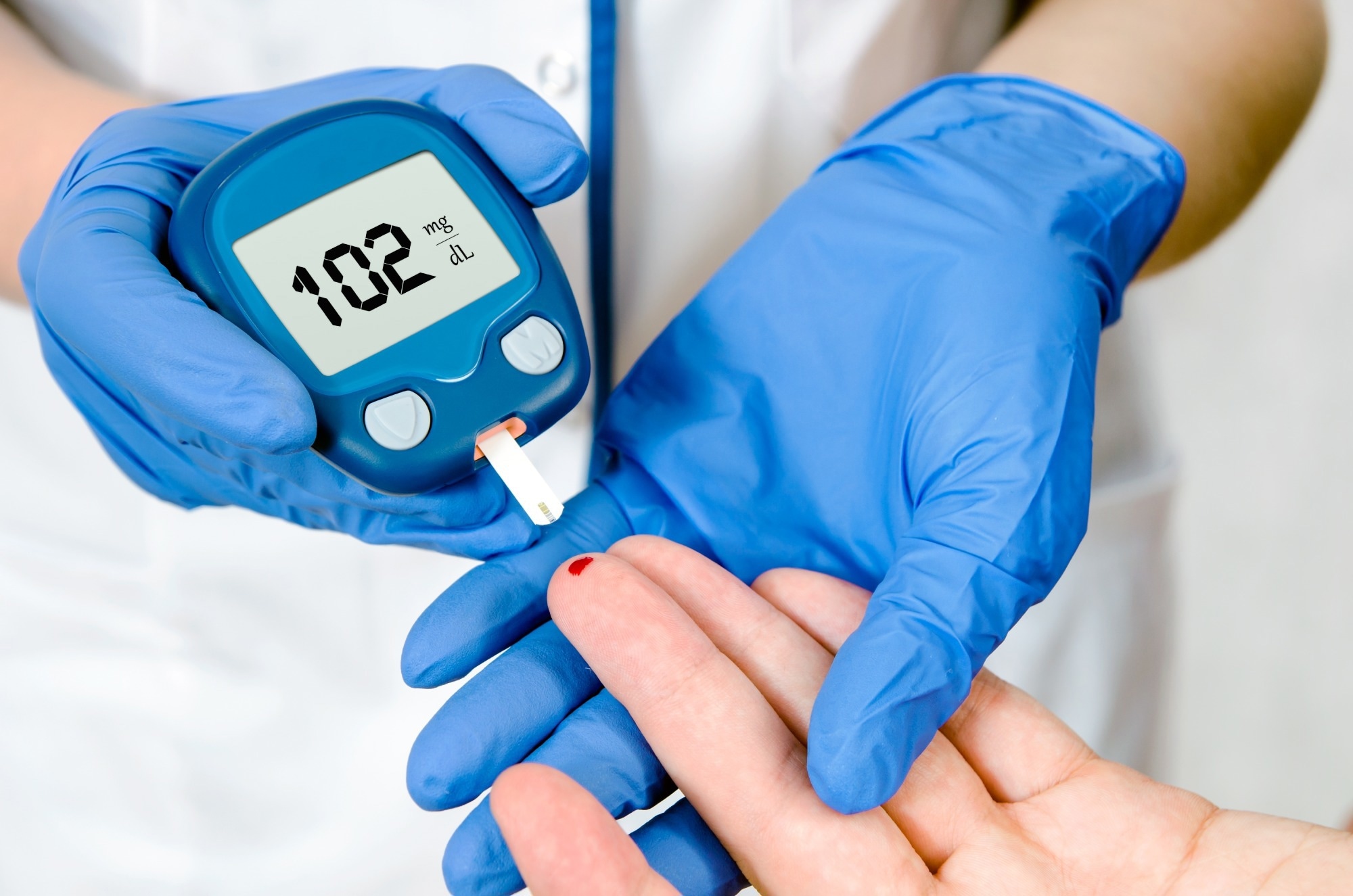According to the International Diabetes Federation, diabetes is one of the most common health conditions and affects millions of people worldwide. By 2040, researchers estimate that over 700 million people will develop diabetes.
Diabetes is characterized by increased blood glucose levels due to insulin resistance (IR) or insufficient insulin production. During pregnancy, many women develop gestational diabetes mellitus (GDM), which is similar to type 2 diabetes mellitus (T2DM).
Several studies have shown that physical activity (PA) can alleviate the negative effects of diabetes. In a recent Antioxidants study, scientists review the available literature to determine whether PA can be used as an effective intervention to mitigate obesity-related inflammation in T2DM and GDM.
 Study: Physical Activity as a Modern Intervention in the Fight against Obesity-Related Inflammation in Type 2 Diabetes Mellitus and Gestational Diabetes. Image Credit: Proxima Studio / Shutterstock.com
Study: Physical Activity as a Modern Intervention in the Fight against Obesity-Related Inflammation in Type 2 Diabetes Mellitus and Gestational Diabetes. Image Credit: Proxima Studio / Shutterstock.com
How do T2DM and GDM affect human health?
Diabetes is a metabolic disease that leads to severe health conditions, including stroke, renal failure, and heart disease. Autoimmune-mediated pancreatic cell destruction leads to type 1 diabetes, which is diagnosed based on the presence of islet cell antibodies. T2DM is the most common type of diabetes and is affected by several factors, including age, obesity, as well as genetic and environmental factors.
Insufficient PA, increased consumption of alcohol and other drugs, and a lack of sleep affect metabolic processes. A dysregulated metabolic process leads to obesity and T2DM. Currently, one-third of the current global population is obese or overweight.
GDM can arise in pregnant women and often involves IR and glucose intolerance. In most cases, GDM resolves soon after delivery. The frequency of GDM ranges between 5% and 20% of all pregnancies.
Alterations in the maternal hormone pattern and metabolism associated with GDM lead to an irregular pattern of fetal growth. This increases the risk of obesity and glucose intolerance in the child during adolescence. As compared to non-GDM pregnancies, GDM pregnancies increase the risk of T2DM for the child later in life.
Pregnancy-induced IR ensures an adequate supply of glucose for fetal growth and development. It is important to increase insulin secretion as pregnancy progresses to maintain glucose levels in the normal range.
Issues related to insulin sensitivity in pregnant women have been largely related to pre-pregnancy body weight. In fact, obese women are at a higher risk of developing GDM as compared to non-obese or overweight women.
Recently, the Hyperglycaemia and Adverse Pregnancy Outcome (HAPO) study established a strong relationship between higher body mass index (BMI) and pregnancy complications, including premature birth, preeclampsia, stillbirth, and cesarean section.
Hyperglycemia also adversely affects leukocyte function and causes an increased production of cytokines such as interleukins 6 (IL-6) and IL-1β, as well as tumor-necrosis factor α (TNF-α). This condition ultimately increases the risk of infection among diabetic patients.
Several studies have shown that obesity causes an increase in C-reactive protein (CRP) levels, which indicates inflammation. To date, the pathophysiology of GDM is not fully understood.
The impact of PA in obesity-related inflammation in T2DM and GDM
Physical training or general PA affects the immunological status of an individual. A single exercise session can lead to changes in circulating immunological cell levels, secretion of microribonucleic acid (microRNA), and cytokine production.
A high level of exposure of pancreatic beta-cells to circulating inflammatory factors like IL-1β, interferon γ (IFN-γ), and TNF-α inhibits insulin secretion. Immune cell infiltration, fibrosis, cell death, increased inflammation markers, and amyloid deposition (IAPP) are common pathological changes that occur in the pancreatic islets of T2DM patients.
A previous study using an animal model of obese T2DM revealed that regular exercise training can prevent the accumulation of pro-inflammatory cytokines in the pancreas. This condition improves the overall insulin sensitivity of the body.
Regular PA improves the expression of heme oxygenase-1 (HO-1) in the pancreas. Exercise positively affects β-cells by preventing apoptosis and increasing proliferation in islets. Previous studies have shown that exercise significantly controls the number of β-cells in the diabetic pancreas and improves the number of small islet cells.
PA increases glucose uptake and utilization by skeletal muscles through the activation of glucose transporter 4 (GLUT4) expression and translocation to the muscle membrane. The increased transport of carbohydrates to the skeletal muscles reduces blood glucose levels.
Increased muscle insulin sensitivity has been observed after completing exercise. Several clinical trials have reported positive effects of PA on inflammatory status in obese patients with T2DM.
Regular PA, a balanced diet, and not smoking significantly decrease the risk of developing GDM.
PA progressively decreases from the first to the last trimester. However, regular physical training is beneficial for glucose homeostasis and weight control, with both of these conditions extremely beneficial for pregnant women at risk of or with GDM.
Different forms of PA, including aerobic and resistance exercise, are favorable in GDM. Likewise, stationary cycling, walking, and water aerobics are also associated with positive glycaemic control. Resistance exercise improves muscle mass and reduces the need for insulin in patients with GDM.